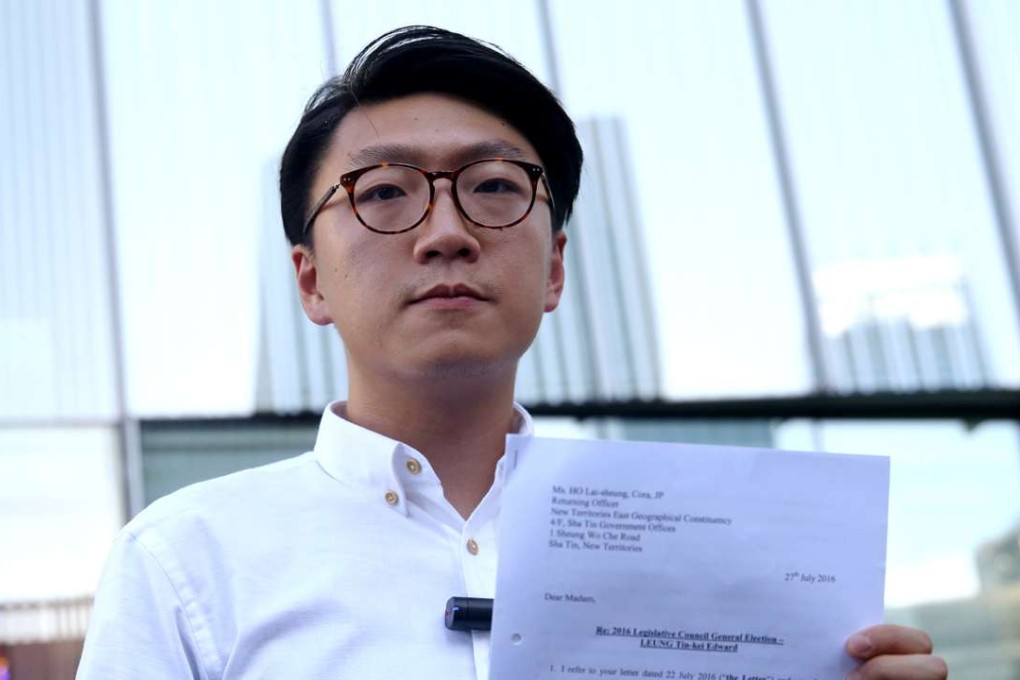Hong Kong localist gives in to election rule while others stick to their guns and are cleared to run
Edward Leung Tin-kei, from Hong Kong Indigenous, agreed to accept controversial changes to election rules requiring candidates sign a form acknowledging Hong Kong as an inalienable part of China

In a complete U-turn on Thursday, radical localist Edward Leung Tin-kei agreed to accept controversial changes to election rules targeting independence advocates, even as three others who refused to comply were cleared to run in September’s Legislative Council polls.
Commentators said the turn of events had raised more questions as to why the government would impose new rules without enforcing them, and possibly strengthened the case for other pro-independence candidates to challenge the authorities if their nominations were invalidated.
Leung had filed one of two applications for a judicial review of whether the Electoral Affairs Commission had the right to make all Legco candidates sign a form acknowledging Hong Kong as an inalienable part of China, in addition to the standard declaration to uphold the Basic Law.
On Wednesday, the court refused to immediately hear the judicial reviews before the end of the nomination period on Friday.
Leung, of Hong Kong Indigenous, had previously been asked by his returning officer to clarify whether he still supported independence for the city after submitting his application to run for a seat in the New Territories East constituency. In his reply on Thursday, it was a “resounding no”.
“Since those in power do not want me to enter [Legco], I will do whatever I can to be elected,” he said. “I must stand for election in September and be a legislator to represent those who are not represented in society.”